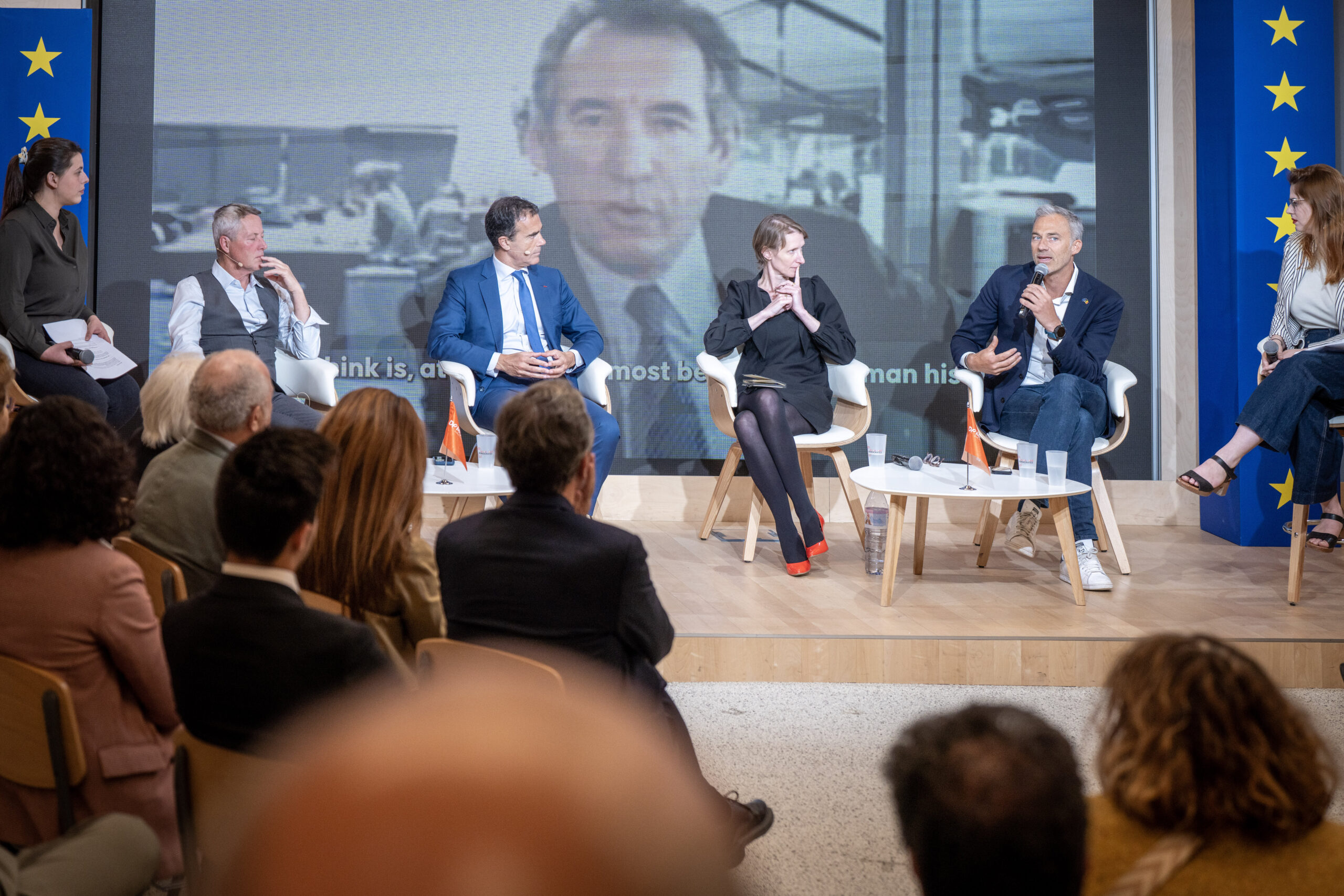In the face of escalating global instability and mounting threats at Europe’s borders, leading pro-European politicians gathered in Paris to send a clear message: Europe must act decisively to protect its security, sovereignty and values. The event, titled “Agir ou subir: une défense commune pour une Europe puissante” (“To act or to submit: a common defence for a powerful Europe”), marked the second stop in the European Democratic Party’s “Lead or Be Led” campaign.
Coming just days after the inaugural event in Brussels, the Paris round table brought together a wide range of centrist voices committed to the European project. Moderated by Laure Niclot, President of Jeunes Européens France, and Alice Bernard-Montini, President of Jeunes Démocrates Européens, the debate offered a frank and ambitious vision for Europe’s strategic future.
Sandro Gozi, MEP and Secretary General of the European Democratic Party, set the tone with a call for transnational solidarity among democracies. “Nationalists are already organised at the global level, moderate democrats are not,” he warned. “We need a ‘democratic international’, a transnational network to counter Trump, Orban, Milei and Meloni and defend the liberal international order.” According to Gozi, the time for waiting is over. “Foreign policy and security must become fully European policies.”

At the heart of the discussion was the conviction that Europe must no longer be reactive. As Yvan Verougstraete, Belgian MEP and leader of Les Engagés, stated, “If we do not react strongly and consistently, we legitimise the law of the jungle.” He stressed that security today must go beyond traditional military considerations. “Modern defence includes digital resilience, industrial autonomy and environmental protection,” he said, making the case for a comprehensive European security strategy that includes energy independence and technological sovereignty.
Maud Gatel, Secretary General of France’s MoDem party, tackled the critical balance between defence and social priorities. “How can we support common defence without sacrificing social rights, ecology and education?” she asked. Her answer was clear: “There is no contradiction, there is a need for integration.” For Gatel and many others on the panel, a Europe capable of defending itself must also be a Europe that protects its citizens’ well-being and future.
Philippe Michel-Kleisbauer, a former member of the French National Assembly and an expert on defence, brought a pragmatic perspective. He argued against the creation of a supranational European army, advocating instead for closer coordination between existing national forces. “We cannot and must not dream of a new European army,” he said. “It is better to focus on pragmatic cooperation between existing armies, without undermining national sovereignty, but strengthening it through integration.”

One of the most pressing topics was the paralysis caused by the EU’s unanimity rule in foreign policy. The panelists did not shy away from tough truths. “We cannot allow two pro-Putin governments to block the whole of Europe,” said Verougstraete, calling for the eventual use of treaty-based sanctions and the elimination of the unanimity requirement in strategic matters.
The message from Paris was firm and united: Europe must lead with political will, not wait for consensus at the lowest common denominator. “It is time for a Europe of political will,” declared Gozi. “We can no longer wait for the slowest.” The call was for a vanguard of member states to build a genuine European defence pillar, one that complements NATO but is capable of autonomous action when needed.
The event ended on a hopeful but urgent note. “This is not about militarising Europe,” one speaker said, “but about defending its values: freedom, democracy, and peace.”
The Paris round table demonstrated that a stronger, more united and more responsible Europe is not just necessary, but possible. The choice, as the campaign’s title suggests, is stark: act or suffer. And for the European Democrats, the answer is already clear.












